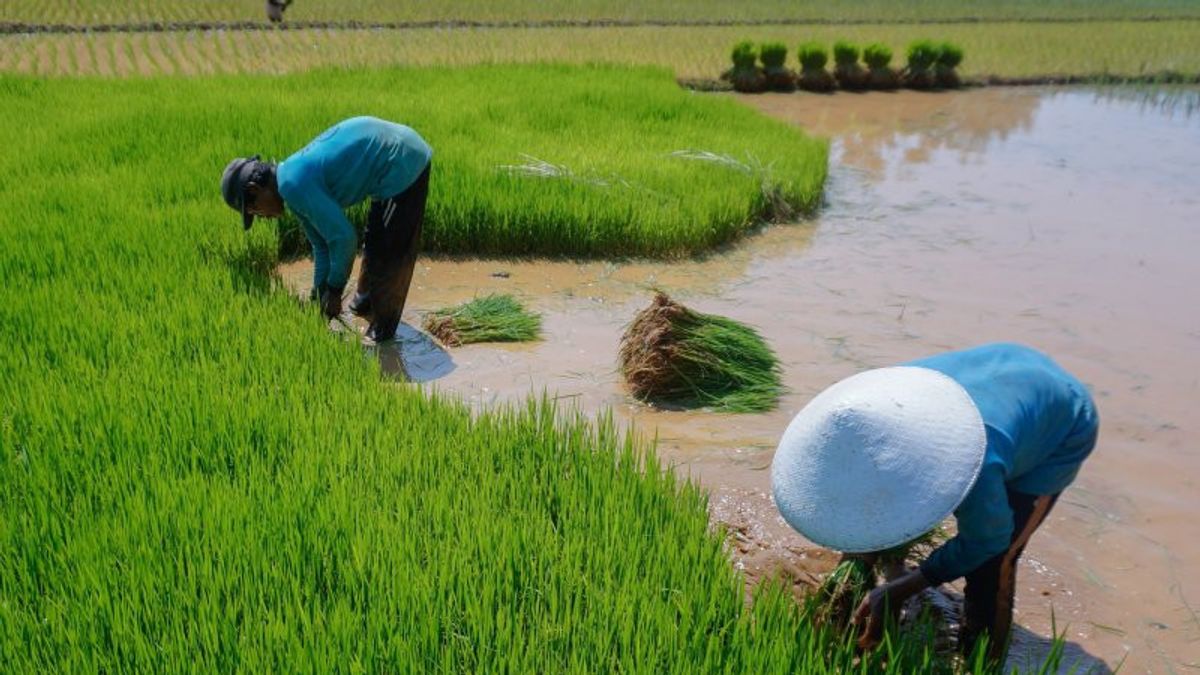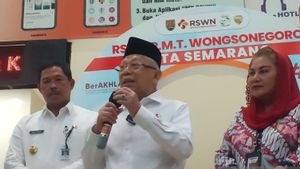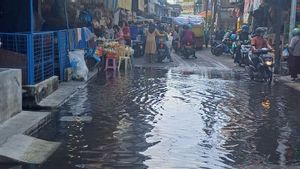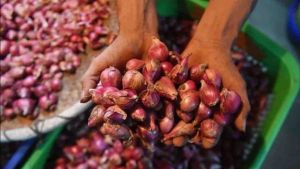JAKARTA - Indonesia is considered necessary to prioritize land intensification rather than land extensification in increasing national food production.
"Land intensification can be done through superior seeds to access to fertilizers. Looking again at the gap in agricultural productivity between Java and outside Java, it still tends to be large, so the optimization of existing agricultural land needs to be boosted," said Head of Research Center for Indonesian Policy Studies (CIPS) Aditya Alta quoting Antara.
Aditya said, in addition to taking a large amount of money for the environment, extensification of land or adding new areas will also produce carbon emissions that will exacerbate natural damage.
He revealed that the urgency of efforts to increase productivity can be seen from the sloping productivity per hectare of several commodities such as rice and soybeans in recent years. The imbalance in productivity that occurs between regions has not been overcome.
CIPS research entitled Changing from Fertilizer and Seed Subsidy: Reviewing Assistance to Encourage Productivity and Competition in the Agricultural Input Market shows that rice farming productivity in Java reaches 5.64 tons/hectare or 23 percent higher than rice productivity outside Java which is 4.58 tons/hectare.
The rice harvest area outside Java covers about 50 percent of the national rice harvest area, but its contribution to national rice production is only 44 percent.
This study also describes factors that contribute to the lack of optimal rice productivity outside Java, such as access to irrigation, the use of fertilizers, and the application of a'strength of legowo' planting pattern that regulates the interbeh distance.
"The potential for agricultural products outside Java can still increase significantly if these factors are further increased, so that the expansion of land is no longer the only way to increase productivity," he also said.
Aditya said that collective efforts are needed from upstream to downstream to realize food security. Some of the things that CIPS recommends for this include prioritizing and supporting agricultural investment and the elected president will need to evaluate investment procedures and review strategies to improve market access for farmers.
No less important, added value and efficiency in the agricultural sector need to be improved through the use of agricultural innovation to improve quality and reduce crop growth.
"The elected president will need to evaluate investment procedures in the agricultural sector to attract investors," said Aditya.
SEE ALSO:
Based on data from the Investment Coordinating Board (BKPM), the realization of agricultural investment in 2014-2022 grew by around 28 percent from the previous Rp13 trillion to Rp43.5 trillion. However, there was a decline in 2020-2022 due to the Covid-19 pandemic. However, in 2022 the value will again increase to Rp38.8 trillion or grow by 32 percent.
Investment is urgently needed to increase the adoption of mechanization and agricultural technology, good cultivation techniques, irrigation network expansion, and climate change mitigation with weather modifications.
The government needs to provide support for research and innovation, as well as increase the capacity of human resources in the agricultural sector to be more productive, including through cooperation with the private sector.
"Agricultural system reform also needs to be included in the President's priority work program which will be selected in the future," said Aditya.
The English, Chinese, Japanese, Arabic, and French versions are automatically generated by the AI. So there may still be inaccuracies in translating, please always see Indonesian as our main language. (system supported by DigitalSiber.id)
















